- Size: 750ml
- Region: Kentucky
- ABV: 100%
- Tasting notes: Plum, oak, tobacco
- Price at publish: $78.99
Best Whiskeys For Your Money

Our evaluations and opinions are not influenced by our advertising relationships, but we may earn a commission from our partners’ links. This content is created by TIME Stamped, under TIME’s direction and produced in accordance with TIME’s editorial guidelines and overseen by TIME’s editorial staff. Learn more about it.
Exploring the world of whiskey is an endeavor worth savoring with every sip, but it can be overwhelming with so many options out there. There are dozens of whiskey varieties available, each with its regional history, different production methods, use of various types of wood barrels to age the liquor, flavor profiles, and more. Even the spelling of whiskey (or whisky) depends on the region. For example, it tends to be spelled whiskey in America and Ireland and whisky in Scotland, Japan, and Canada.
“As the saying goes, no two whiskies are the same,” shares Kelsey McKechnie, The Balvenie Malt Master. “There is lots of innovation in the industry and countries from Scotland to Tasmania are making their own.” Of course, she explains that depending on the country of origin, there are different regulations.
“To actually be a Scotch whisky, there are strict legal provisions that govern how Scotch whisky is made under United Kingdom law to protect Scotland’s national spirit. For instance, Scotch Whisky must be made in Scotland from whole grains, water, and yeast and bottled at a minimum strength of 40% abv,” she says.
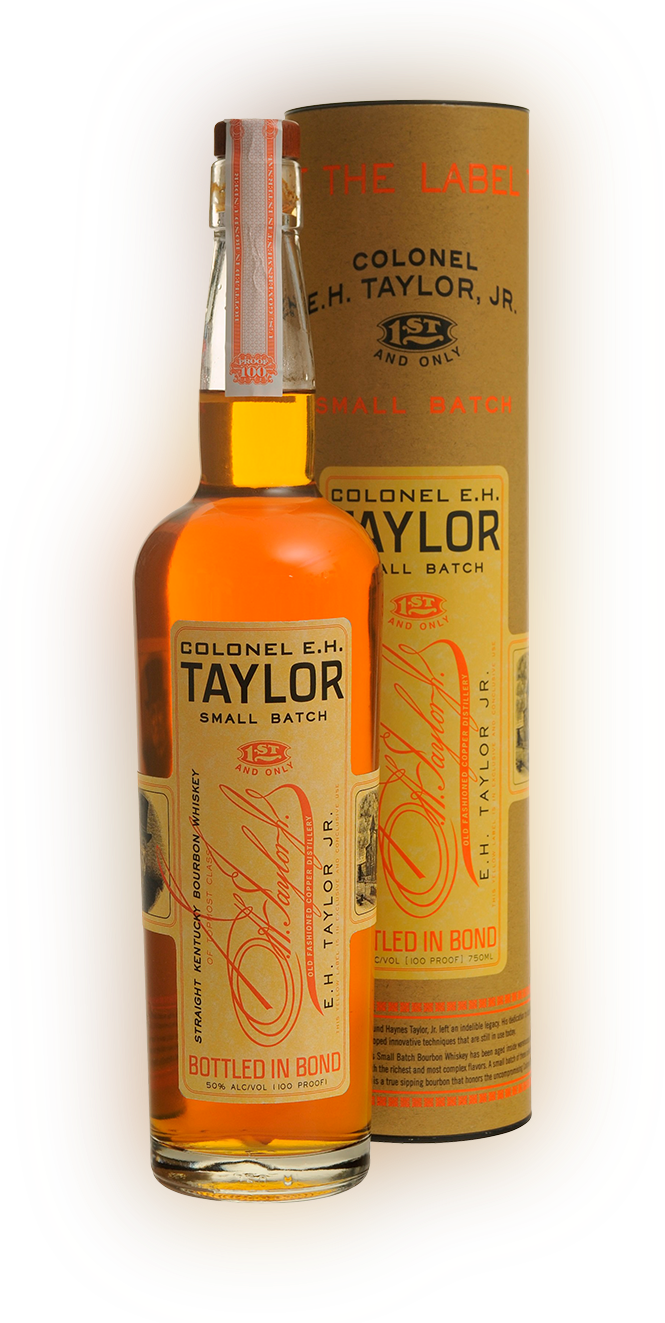
A colleague shared, jokingly, “every time I tell myself I won't drink the whole bottle within a week, every time I fail. It's just delicious.” This limited edition Kentucky bourbon hits all the right notes: buttery plum and oak nose, a citrus palate, and a smoky aftertaste with a finish of oak and tobacco. At $78 a bottle, it is at a higher price point than some, but if purchasing it won’t break your bank, it’s a small-batch bourbon that will likely please new and seasoned bourbon drinkers.
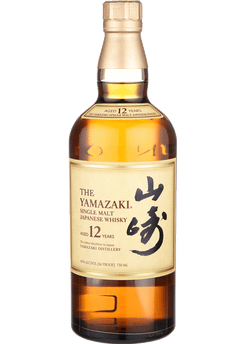
Yamazaki is smooth like Scotch but has a distinctive Japanese whiskey flavor. It is aged in casks of three different kinds of oak (American, Spanish, and Japanese). It has a delicate, dry finish with dried fruits and honey aroma.

Nikka Yoichi Aromatic Yeast 2022 leans toward a similar aroma profile to ginjo sake, but it stands out as another fantastic single malt Japanese whiskey with fruits and soft oak appeal with oceanic notes, according to some tasters. An elevated experience, it is the pricer of these two top tier Japanese whisky offerings.
These are two Japanese whiskey options that are among the best the Japanese whiskey industry offers in the United States.

Some ryes can taste harsh (at least for some palettes), but this one is a smooth, woodsy, drinkable 100 percent Irish rye whisky that can do double duty in an old-fashioned cocktail, thanks to its subtle notes of clove and vanilla that add to the taste. If you don’t want a cocktail, this is a drinkable rye on its own. “Top shelf whiskeys, regardless of style, go well in classic cocktails like an Old Fashioned,” says Quartin. “They usually make the cocktail that much more incredible.”
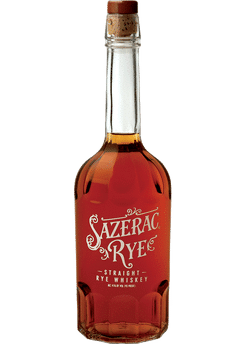
One could say “insanely affordable” for one of the most drinkable Kentucky whiskeys out there, according to those who love rye whiskey. This is a straight rye aged six years in new charred American oak barrels made from at least 51% rye grain. The orange zest note gives it a zing, and the smoky clove goes down smoothly.

This award-winning Balvenie is a 12-year-old double wood that is matured in two wood types. It starts off in American oak, which gives the whisky its vanilla spice, and then it ages for nine months in European oak sherry casks, adding a layer of fruit and honey. The flavors build beautifully together without a strong bite that may put new Scotch drinkers off. The end result is a drinkable, handcrafted single-malt Scotch that is extremely smooth and affordable for a Scotch of its caliber. “At Balvenie, we use a wide range of cask types to deliver unique flavors across our range; the contents that the finishing cask have previously held play a great role in affecting the oak, and as such, the seasoned oak plays a huge part in the flavor we are able to create with our Balvenie spirit,” shares McKechnie.
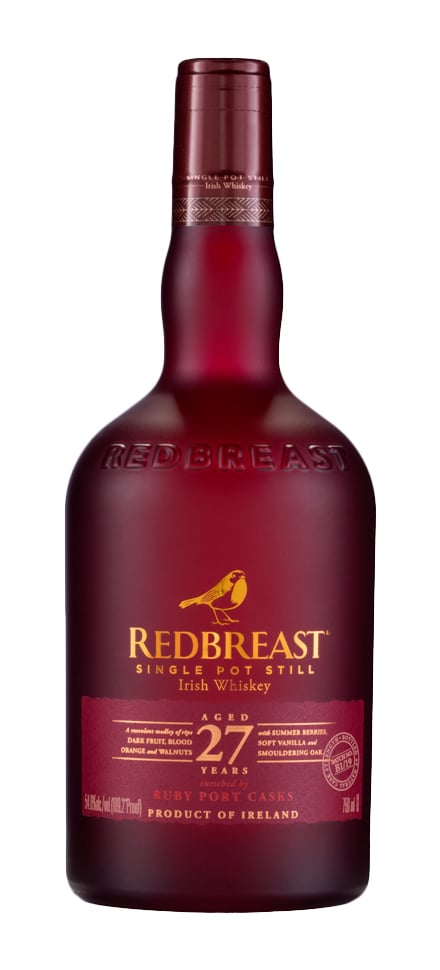
This 27-year-old single pot still Irish whiskey is matured in bourbon, sherry, and ruby port casks and is the oldest permanent release in the Redbreast family of whiskeys. I was lucky enough to try Redbreast whiskey at a tasting event, and the maker was one of my personal favorites. It is truly a complex Irish whiskey tasting of ripe plums, dark cherries, and summer berries with a hint of heat and spices like vanilla, cinnamon, red pepper, nutmeg, and toasted oak. Smooth, silky, and delicious, but all of this comes at a premium price.

Canadian whiskey tends to be made from blends, but this bottle is recommended by whiskey enthusiast Stacie Stearns, Ohio Liquor Board Consultant and 2023 Irish Whiskey Award Nominee. Made for easy sipping, this whiskey has a lovely oak finish with a hint of spice.
A Canadian rye whiskey recommended by the experts with warmth and spice made for easy sipping.

Michter is a highly recommended bourbon maker in Kentucky. This small-batch bourbon features corn mash and has a complex nose with camphor, corn, and wood smoke, with rye underneath. It finishes with a wood note and a hint of maple syrup.

A gift is subjective. As an Irish whiskey lover, they may suggest something different from a Scotch drinker. My colleague who knows his whiskey recommended this small batch of bourbon for its taste and reasonable price tag for something of its caliber. From the Wild Turkey Distillery, this is “a really smooth, drinkable bourbon, which is kind of astonishing for something with a 55% ABV,” according to tasters.
This small-batch offering is a great gift for bourbon lovers and is a step above some of its competitors for the price.
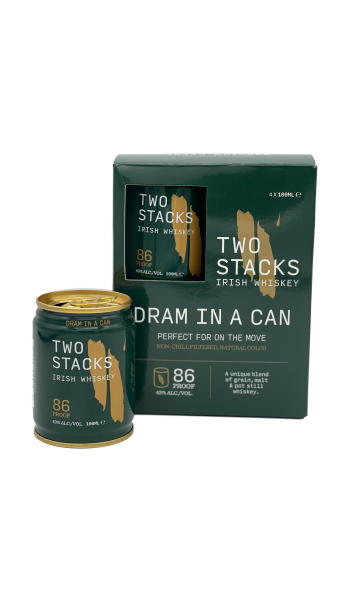
Canned cocktails and wine are all the rage, and now you can enjoy a “dram in a can” as well. I found this whiskey to have a slight bite with a mild sweetness. Best of all, without the slightly metallic taste that can happen with canned drinks. I could see this used as a mixer or enjoyed on its own, as it is made from grain, malt, and pot-still whiskey.
With the U.S. liquor laws determined on a state-by-state basis, there are wonderful whiskeys that didn’t make this list because of their limited availability. I decided to recommend them based on chats with experts and whiskey connoisseurs, while also being mindful that our list contains the best whiskeys that are readily available throughout most of the country.
“There are so many different styles and flavor profiles out there that it can be overwhelming for newcomers,” says Lisa Quartin, Whiskey Enthusiast and Executive Bourbon Steward, WSET Level 1—Spirits. “Plus, whiskey is subjective. Attending tastings, whether at a bar, restaurant, or distillery, via an online event, or at a friend's house, is the best way to try different whiskeys and determine your preferences.”
Ask yourself the following questions before you buy a bottle of whiskey.
There are so many whiskeys on the market that you can usually find something within your price point. However, like any top-shelf liquor, a high-quality bottle will likely be worth the price. Buying a smaller bottle of good whiskey within your price point may be better than simply buying a bottle of the cheap stuff.
Some whiskey is meant to be sipped alone, and others are great as a base for cocktails like an old fashioned, a whiskey sour, or a Manhattan. Quartin suggests trying a ginger drink, like ginger ale or ginger beer, when you mix a whiskey drink because ginger typically pairs well with many whiskey flavors. Blended whiskeys are a better choice than single-malt to use in mixed drinks. Single-malt Irish whiskey or Scotch whiskey, and others are better independently, so you can enjoy its full flavor profile.
Depending on the whiskey you choose to drink, there are many different flavor profiles. For example, I love the smoky taste of a peated Irish whiskey, and my husband loves the taste of an oaky bourbon with caramel or vanilla notes.
Quartin says, “I generally enjoy a range of profiles, from sweet, floral, oaky, vanilla, honey, spicy, to smoky and peaty. It can depend on the mood, season, location, and quality of the whiskey. I usually default towards Irish Single Pot Stills with their dark fruits and nutty and oily nature, but there’s also something about the combination of a peated and Port finished whiskey that I absolutely love.”
Among the most commonly recognized types are below:
While every whiskey is different, sippers (myself included) may describe a whiskey as peaty, smokey, nutty, woodsy, caramel, vanilla, or spice. Whiskey is known as a “brown” liquor, but it can present itself in varying shades like amber, pale gold, or a deep reddish brown depending on many factors, including its age and the type of wood it was matured and/or finished in. Taste is subjective, after all, so you may have to try several before you find your favorite one. We’ve created a round-up based on recommendations from whiskey experts and enthusiasts to help you.
There is no hard and fast rule for drinking whiskey. “Whisk[e]y is for everyone, and it is really up to you how you drink it, whether that be in a cocktail, neat, with or without ice, or a refreshing high ball,” says McKechnie. “It doesn’t matter if it's a single malt or a blend, the important thing is to experience the flavor and enjoy!”
Some people like it neat, others put ice into their glass (others think ice and water will dilute it), and some drinkers prefer mixing it into a cocktail. It all comes down to what you prefer.
Mixing a whiskey-based cocktail can be done with ginger ale, ginger beer, coca-cola, lemon soda, hot apple cider (paired with bourbon is delish), Earl Gray tea, club soda, and the list goes on. It depends on how you want to drink your whiskey. Quartin suggests trying carbonated mixers such as ginger ale, cola, seltzer, or even a sparkling lemonade. They typically blend well and complement many whiskey profiles.
Single malt whiskey is made from 100 percent malted barley by an individual distillery.
Bourbon originated in Kentucky and is a type of whiskey made from blended grains. According to the American Bourbon Association, it must be produced in the U.S., include at least 51% corn, aged in a new charred oak container, and be free from added substances.
A blended Scotch whiskey is made from a blend of grain whiskeys and single malts from a variety of distilleries. It is typically less expensive than single-malt or single-barrel scotch whiskey.
A shot of whiskey is likely 105 calories, maybe a little less or more, depending on the kind of whiskey.
Whiskey is made out of fermented grain mash and is usually aged in oak wood barrels, although some Japanese whiskey is made from rice and is distilled in stainless steel.
Casks are where the whiskey is aged, and the type of wood or material of the cask helps make the flavor profile of the liquid. “Each of our expressions is unique, but underpinned by a rich, luxuriously smooth, and distinctively honeyed character, which is the signature flavor of The Balvenie. Sherry casks often play a role in our Single Malts to bring out our much-loved flavor profile,” says McKechnie. “We love to experiment with lots of different types of casks to finish our whiskies, and for our core single malts like those in our Cask Finishes range, each whisk[e]y is matured in two casks to help bring more complexity to each single malt.”
Store your whiskey upright in a cool, dry place out of direct sunlight.
Whiskey is for everyone, from mellow bourbons, to honied Scotch and global offerings from around the world.
The information presented here is created by TIME Stamped and overseen by TIME editorial staff. To learn more, see our About Us page.



